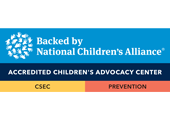A message to our children: “Let’s talk now, not later.”
June 20th, 2022
As the summer arrives, many of us welcome the season by purchasing beach stickers, pulling out the beach towels, bathing suits, floats, boogie boards and coolers for weekends at our favorite seashore spot. We are busy planning summer camp for the kids, family vacations and time off for fun.
At Children’s Cove, we are preparing for summer by provide training and education to camp counselors across the Cape and Islands to recognize and respond to abuse for children in their care. We have turned on the air conditioning to make sure our building is comfortable and welcoming for the families we serve. Summer is also a strategic planning time with our advisory council. Admittedly, at times, it can be quiet over the summer at the Cove, as there is typically a drop in cases referred to us by our community partners. It’s a time for us to catch up, organize, and prepare for the unfortunately busy Fall.
Once kids and teens return to school in the Fall, we get more referrals as school is a place where students make a connection to adults they trust and feel comfortable talking about what happened over the summer. They might reveal their experience with a family member who visited and did something inappropriate, the person at camp who touched them when no one else was around, or the party at the local beach where someone didn’t listen to the word “NO” or used alcohol to get their way.
We need to have open and honest conversations with our kids and teens. Our children need to know it’s okay to speak up and tell us if something happens to them over the summer or at any other time.”
Once kids and teens return to school in the Fall, we get more referrals as school is a place where students make a connection to adults they trust and feel comfortable talking about what happened over the summer. They might reveal their experience with a family member who visited and did something inappropriate, the person at camp who touched them when no one else was around, or the party at the local beach where someone didn’t listen to the word “NO” or used alcohol to get their way.
When a person is victimized, they often tell no one. Because of the stigma of sexual assault and abuse, coupled with the accompanying feelings of mistrust and fear, approximately 90% of assaults and abuse go completely unreported. Many don’t know who to tell or ask for help. It can take a long time for someone to find their voice. It may take days, weeks, months or longer for a victim to recognize that what they experienced was an assault or at the very least, something which was not consented to. This delay can cause challenges for the victim’s mental and physical health, evidence preservation for an investigation, and unfortunately the degradation of the believability of a survivor by the general public.
We can do something about this.
We need to have open and honest conversations with our kids and teens. Our children need to know it’s okay to speak up and tell us if something happens to them anytime, not just summer. It is important to sit down, talk about sexual abuse and sexual assault, and tell kids and teens that if something happens, it’s not their fault – that they will receive help and support. Let’s talk about consent, what it means to them and what their expectations are if something starts to happen. These are difficult, but necessary conversations to have. When we don’t talk about these issues and let our kids and teens know that it’s ok to talk about them, it only furthers the stigma. Silence says these subjects are taboo and off limits, even if it impacts them.
We want our children to make good decisions, to always act responsibly and safely. However, kids and teens make mistakes. We need them to know they are not responsible for being a victim of child abuse – only the perpetrator of that abuse is at fault. Parents need to let their children know they will not get in trouble for telling them they were assaulted at a party, no matter what they were doing or wearing. Children of all ages should know they can ask for help.
As parents, as caregivers, we need to practice what we preach. When children make mistakes and come to us, we cannot fly off the handle (as much as we’d like to). We need to thank them for being honest. If a child reports something has happened, no matter who it was – believe them, support them, and tell them, “Thank you for being so brave to tell me, or anyone, about this.” The ability to say “thank you for telling me, you are so brave” can make an impact in lessening the stigma of child sexual abuse and assault.
For a simple and fun video which may help start a conversation about consent, follow this link. To learn more about ways to create safe environments for children over the summer, please read this article and resources from our partners at Safe Kids Thrive.






